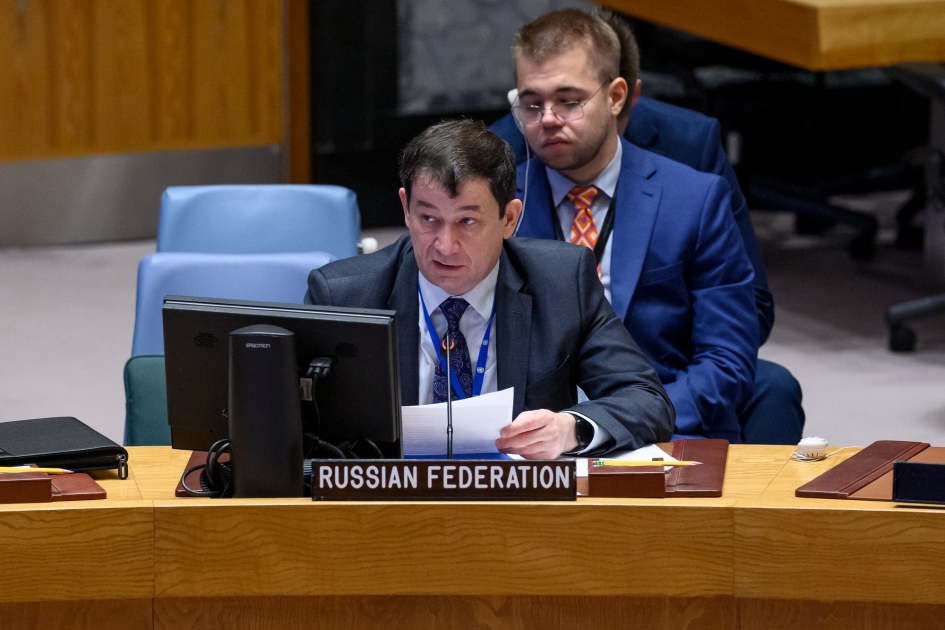Statement by First Deputy Permanent Representative Dmitry Polyanskiy at UNSC briefing on Libya
Mme.President,
We thank SRSG Bathily and Deputy Ambassador of Japan who spoke in the capacity of Chair of 1970 Sanctions Committee for their briefings.
Against the backdrop of the duality of power in Libya, the prospects for achieving a sustainable settlement are not visible yet. The holding of national elections and the ensuing establishment of unified authorities with fair representation of all Libyan regions is the only way to overcome the internal political deadlock. In that regard, it is important to keep working on formalizing the legislative framework for the electoral process between the High Council of State and the Libyan House of Representatives. Unfortunately, these structures have not reached an agreement, despite the generally successful completion of the work of the joint "6 + 6" Committee in late May this year.
We hope that the parties will soon be able to make the necessary agreements. Libyans are tangled in contradictions; however they need to untie this knot by themselves. Without an internal Libyan consensus on a legislative framework, any initiatives (especially separate ones) from international mediators or foreign states will not work and will only lead to further fragmentation of society.
We believe that significant progress in Libya can be achieved only through the joint efforts of all Libyan stakeholders and influential global and regional players, with the United Nations playing a central role. We support the efforts of SRSG Bathily, who is in an active search for solutions to the Libyan political crisis. The cornerstone issue in this context is the organization of general presidential and parliamentary elections. We believe that holding them simultaneously would be preferable from the point of view maintaining stability in the country.
We are convinced, however, that the organization of the electoral process should not be subject to additional conditions, nor should it exclude political figures that enjoy significant support of the population. Inclusiveness is indispensable for the political process to be a success – it should include all the main Libyan players, including representatives of the former authorities.
There is no time to spare, for the situation on the ground is far from stable. The window of opportunity is closing rapidly. The east of the country is still reeling from the aftermath of the devastating natural disaster that struck in September. Clashes among armed groups occur with alarming regularity.
Against that backdrop, the activities of the 5+5 Joint Military Committee are key for deepening the coordination of the parties at the military track and the formation of a unified security architecture, including the issue of the elimination of foreign military presence. As regards the latter, we advocate a synchronized, balanced, gradual and phased withdrawal of all non-Libyan armed groups and military units without exception. If the potential for political consensus is not realized soon, the country risks repeating the sad scenario of the previous decade.
Mme.President,
The most important issue on the Libyan agenda is compliance with the provisions of the territorial arms embargo imposed by the United Nations Security Council. We recall once again that this measure, like other sanctions tools of the Council, is intended primarily to stabilize the situation in the former Jamahiriya. The special inspection regime introduced by Security Council resolution 2292 in the open sea off the coast of Libya, of which Russia stood at the origin, also serves the same purpose.
However, one regional organization, the European Union, has in fact usurped the broad possibilities of a special regime for vessel inspection. At the same time, the activities of EU naval operation IRINI are far from ideal – we have repeatedly pointed out its low effectiveness, the selective nature of inspections and non-transparent schemes. Despite our warnings, the situation remains the same.
The few instances when IRINI confiscated cargoes raise many questions, i.a. in the context of the operation’s conclusions about the military nature of the goods, as well as ways to dispose of them. The IRINI command has been very loose in its interpretation of the conditions of the Libyan special inspections regime. Once again, we recall that the relevant UN Security Council sanctions resolutions do not provide for the transfer of confiscated cargoes to a third party to be used as intended. And the reference made by the EU leadership to its own internal decisions appear an outright slap in the face to this Council's authority.
Thank you.
